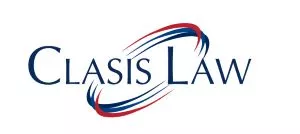- within Employment and HR topic(s)
- in United States
- with readers working within the Law Firm industries
- within Employment and HR topic(s)
- in United States
- with readers working within the Law Firm industries
- within Employment and HR, Consumer Protection, Government and Public Sector topic(s)
The emergence of app-based ride-hailing services in India has significantly changed how its population, especially young men and women, commute for both work and leisure. Promising comfortable, convenient, and relatively affordable transportation, these services have also created job opportunities for small entrepreneur-drivers, often referred to as "partners" by these app-based ride-hailing platforms. Consequently, companies like Uber and Ola have become a prominent part of urban life in India.
However, there have been several instances of women passengers facing sexual harassment while using these app-based ride-hailing services. Recently, in a judgment dated September 30, 2024, a single judge bench of High Court of Karnataka ('Karnataka HC') in the case of Ms. X v. ANI Technologies Private Limited & Others, considered whether platform workers, such as cab drivers, qualify as 'employees' under the Sexual Harassment of Women at Workplace (Prevention, Prohibition and Redressal) Act, 2013 ('POSH Act'), and whether ANI Technologies Private Limited ('OLA') can be classified merely as an 'intermediary'.
In this article we explore the Karnataka HC's ruling wherein the court recognized the platform workers as employees under the POSH Act. The court addresses the safety challenges faced by passengers in app-based ride-hailing services and advocates for stronger accountability and compliance among aggregators to ensure a secure environment for both riders and drivers. Through this analysis, we attempt to contribute to the ongoing discourse on platform worker's rights and the responsibilities of the aggregators.
Factual Matrix
On August 23, 2018, Ms. X ('Petitioner'), a user of the OLA ride-hailing platform, experienced a sexual harassment incident while commuting. During the ride, she was subjected to persistent staring by the driver. Later, she also discovered that the driver was watching pornographic material on his phone, positioning the phone for her visibility while engaging in inappropriate conduct during the ride. Feeling uncomfortable and unsafe, she made urgent requests to the driver to stop the cab, however, the driver refused her requests and insisted he would only drop her off at the destination.
Upon arriving at the drop destination, the Petitioner lodged a complaint with OLA against the driver. While an OLA representative assured her that the incident would be investigated, she was later informed that the driver had only been "blacklisted" and would undergo counselling and training. Discontent with a satisfactory resolution of her complaint by OLA and OLA's attempts to persuade her to close the complaint, the Petitioner on August 25, 2018, filed a complaint with the Cubbon Park Police Station, Bengaluru.
During the investigation on September 7, 2018, she identified the driver and recorded her statement before the police. However, OLA representatives revealed that he was not the assigned driver who was registered with OLA, and the driver had been swapped. OLA acknowledged that driver swapping was a common issue which led to several sexual harassment complaints. Subsequently, on September 21, 2018, the Petitioner issued a legal notice to OLA, demanding action against the driver under the POSH Act and requesting documentation of OLA's compliance with the Karnataka on Demand Transportation Technology Aggregator Rules, 2016 ('Aggregator Rules, 2016'). In its response dated September 27, 2018, OLA claimed it lacked jurisdiction to investigate the matter as the drivers were not employees of OLA but were independent contractors.
On September 30, 2018, the Petitioner attempted to file a complaint with the Internal Complaints Committee ('ICC') under section 9 of the POSH Act via email, but it bounced back due to certain company restrictions. Thereafter, the Petitioner alerted OLA's CEO and Director of Legal Affairs on October 1, 2018, seeking immediate action. The ICC responded on October 9, 2018, indicating it had sought preliminary advice from its external counsel regarding jurisdiction and it was advised that it did not have the jurisdiction to entertain the complaint. OLA reaffirmed its stance via email on October 11, 2018, reiterating that the drivers were not OLA employees but were independent contractors and LOA and its ICC had no jurisdiction to initiate any enquiry under the POSH Act.
The Petitioner aggrieved by the inaction on part of OLA and ICC to inquire into her complaint against the driver under the POSH Act, filed a writ of mandamus before the Karnataka HC.
Issues and Court's Ruling
After considering the extensive arguments advanced from all the parties, the Karnataka HC observed the following in relation to the issues framed in this case:
- Whether in the facts and circumstance of the case, ICC and OLA, are amenable to the writ jurisdiction of Karnataka HC under Article 226 of the Constitution of India?
The court, after considering various legal precedents, noted that a writ petition against private entities can be maintained if it is demonstrated that the concerned entity has a duty and obligation to the public that involves a public law element, and this authority is accepted by the public at large.
Upon a combined reading of the Aggregator Rules, 2016, in conjunction with the POSH Act, the court observed that OLA, both an 'aggregator' and 'licensee' under the Aggregator Rules, 2016, is subject to additional statutory obligations of ensuring passenger safety, monitoring proper use of taxis or vehicles, and reporting any untoward incidents to the licensing authority and local police. Given OLA's obligation to establish an ICC for investigating complaints of sexual harassment, along with its responsibilities under the POSH Act and the Aggregator Rules, 2016, it was evident that both the ICC and OLA have a duty to the public. Accordingly, they cannot claim to be exempt from fulfilling a 'public duty' with a 'public law element', which would render them amenable to Article 226 of the Constitution.
The court observed that it is settled that sexual harassment constitutes violation of various fundamental rights of women guaranteed under Articles 14, 15, 19(1)(g) and 21 of the Constitution of India which may be enforced against private persons with corresponding duty imposed by a statue.
- Whether in the facts and circumstance of the case the driver is an 'employee' of OLA as defined under section 2(f) of the POSH Act?
A key issue in this case was the existence of an 'employer' and 'employee' relationship between OLA, the driver and the impersonator. To address this, the court closely examined the terms of the subscription agreement between OLA, transport provider and the driver; and the consumer agreement between OLA and the rider. The court found it unreasonable to claim that OLA could operate its extensive global business without the assistance or involvement of its drivers, regardless of how indirectly connected they may be. It noted that terms such as "driver-partner", "driver subscriber", "independent contractor", and "principle-to-principle basis" may serve as a façade that needed to be lifted to reveal the true nature of the relationship. The subscription agreement was also assessed in light of the objectives of the POSH Act, aiming to further its purpose.
The court observed that the subscription agreement clearly outlined the scope of service, manner and method that the driver must adopt while rendering the services. OLA maintained management, supervision, and control over how the driver delivers these services; thus, OLA did not have a "limited role". The subscription agreement restricted the driver's choices and freedom in several aspects, such as booking, selecting the route, communicating with the user, even limiting their mobile usage while delivering the service etc. The court noted that though the subscription agreement described the relationship between the driver and OLA as that of independent contractors, the court opined that the driver falls under the broad definition of an employee under the POSH Act, which also includes persons employed on a contract basis and/or a contract worker. The court ruled that to uphold the intent and purpose of the POSH Act, it is crucial to extend the definition of 'employee' to include all types of relationships that an employer may have with others in relation to business activities, such as the driver. Failing to do so would compromise the effectiveness of the POSH Act in the broader private sector context. Therefore, upon scrutinizing the subscription agreement, the court found that OLA plays an active role in the management, supervision and control of the entire business and the driver would fall under the definition of employee under the POSH Act.
- Whether in the facts and circumstances of the case, OLA can be construed only as an 'intermediary' as contended?
Another aspect that emerged was that the vehicle involved in the incident belonged to OLA Fleet Technologies Private Limited, a subsidiary of OLA. This was in contrast to the statement of objections filed by ICC and OLA, that the taxi in question was hired by the driver through a third party.
Given the clauses of the subscription agreement and the admitted position that the vehicle belonged to OLA's group companies, the court concluded that, for the purpose of the POSH Act, the driver is an 'employee' of OLA, which cannot be regarded merely as an 'intermediary'.
- Whether the ICC and OLA have committed breach of their statutory obligation as alleged by the Petitioner?
The court observed that there was a complete and intentional disregard for sensitivity, seriousness, and urgency from both the ICC and OLA in their response to the Petitioner's repeated pleas. There were instances of non-compliance and contravention of the POSH Act, Aggregator Rules, 2016, and the 'zero tolerance policy' of OLA under the subscription agreement.
Specifically, it noted that ICC distanced itself from accepting the complaint on the grounds of a lack of an employer-employee relationship. Additionally, ICC claimed a lack of jurisdiction based on advice from its external counsel; however, seeking such an opinion and closing the complaint based on that advice is neither permissible nor contemplated under the POSH Act. The court also noted that OLA had made repeated assurances regarding rider safety in both the subscription agreement and the consumer agreement. OLA positioned itself responsible for ensuring the safety and security of its consumers through a 'zero tolerance policy'. However, these assurances and representations, lacked any genuine intention or action for implementation—as evidenced in this case as when it truly mattered, OLA remained uncommunicative and unresponsive.
The court expressed sympathy for the Petitioner, who chose an OLA ride based on the promised safety and protection advertised by it. After experiencing such a dangerous situation, she sought to file a complaint and engage the ICC to uphold her fundamental, statutory, and contractual rights, as outlined in her consumer agreement with OLA upon downloading the OLA app. This agreement was clearly violated by both the ICC and OLA, demonstrating a complete disregard for her rights. Consequently, the circumstances of this case warranted adequate compensation for the trauma she has suffered.
The Court further found that OLA was operating without renewal of its license as mandatorily required under Aggregators Rules, 2016. Furthermore, Karnataka State Transport Authority ('KSTA'), before whom the alleged application for renewal of license was pending has done nothing in furtherance to its statutory obligations and duties imposed under the Motor Vehicles Act and Rules, 1988 and Aggregators Rules, 2016.
- Whether the Petitioner is entitled for the reliefs as sought for in the petition?
Based on the assessment of the above issues, the court concluded that both ICC and OLA, were guilty of deliberate negligence and inaction and are obligated to compensate the Petitioner. Consequently, the court directed them to compensate the Petitioner with a sum of INR 5,00,000, acknowledging the breach and violation of her fundamental rights on account of inaction. They were also directed to cover INR 50,000 towards litigation expenses. Furthermore, the court directed KSTA to personally pay INR 1,00,000 to the Karnataka Legal Service Authority.
Analysis and Conclusion
With the rise of gig and platform workers and the growing popularity of aggregator platforms such as food delivery services, online marketplaces, and other e-commerce services, it has become increasingly important to determine whether these emerging platforms fall under the ambit of the POSH Act. In the present case, the Karnataka HC has squarely brought these aggregator platforms within its scope by establishing an employer-employee relationship between the aggregator (OLA) and the platform worker (driver) for the purpose of POSH Act.
In our previous article, we examined the tests applied across various jurisdictions, including India, to assess the misclassification of independent contractors as employees. These tests typically emphasize factors such as the degree of control exerted by the employer, integration, duration of engagement, exclusivity etc. In the current case, the court scrutinized the terms of the subscription agreement, which included phrases like "driver-partner", "independent contractor" etc. The Court viewed these terms as a façade that needed to be pierced. It considered the entirety of the working relationship between OLA and the driver, noting the extent of control exercised by OLA. The court observed that the driver had minimal bargaining power, being left with no choice but to accept the contract in its entirety, regardless of whether the terms were fair or unfair.
With the rapid expansion of the platform and gig economy and following the passage of the Code on Social Security, 2020, several states, including Rajasthan, Karnataka, and Jharkhand, are in the process of enacting legislations to recognize gig workers as a distinct class and to regulate their working conditions. This judgment has undoubtedly created a ripple effect, imposing greater responsibility on aggregators to ensure accurate classification of workers and to provide a safe and secure working environment. Additionally, it reinforces their liability to comply with applicable laws.
In a recent turn of events, OLA has filed an appeal with the division bench of the Karnataka HC, which has stayed the order passed by the single judge bench until the next date of hearing. If upheld, this would hold aggregators accountable for ensuring a safe and harassment-free environment for riders and drivers alike. It would also give real substance to the 'zero-tolerance policy' often referenced in the consumer agreement, making the company responsible for the behaviour of its drivers.
The content of this article is intended to provide a general guide to the subject matter. Specialist advice should be sought about your specific circumstances.



